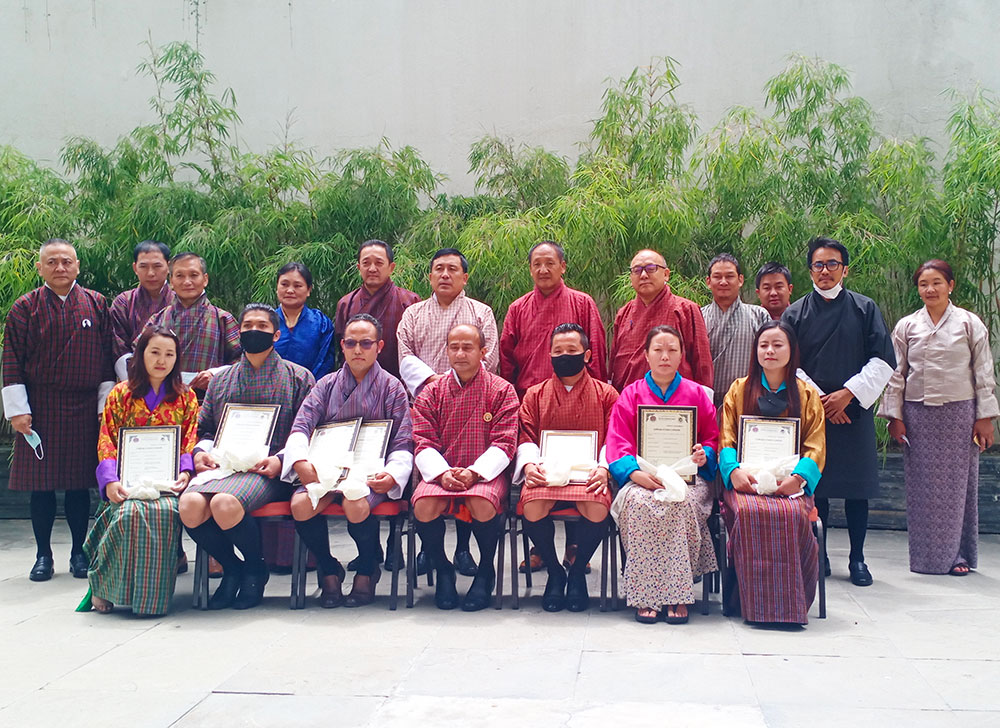Thinley Namgay
The Department of Cottage and Small Industries (DCSI) is implementing a Cottage and Small Industries Flagship Programme (CSIFSP), to export local products to the international market.
As part of the CSIFSP, Bhutan Standards Bureau (BSB) certified six local products like Druk Peci, Tagma Handmade Paper, Himalayan Incense, Colors of Bhutan (raw silk products), Pema Jamtsho Bricks and Chaychey Sanitary Pad in Thimphu yesterday.
While BSB certifies non-food-based products,Bhutan Agriculture and Food Regulatory Authority (BAFRA) would certify food-based products.
Officials said that since the implementation of the flagship programme in 2019, 20 products were certified.
Karma Wangdi from BSB’s certification division said that certification would ensure that the products have undergone testing and other requirements before entering the market.
The certification process begins with manufacturers submitting a letter. Officials then assess machinery, competency of staff, and source of raw materials.
Karma Wangdi said the yearly surveillance would be carried out to ensure that the certified products maintain the standards.
Economic Affairs Minister Loknath Sharma said that the CSI sector was improving.
He, however, said entrepreneurs are impacted by the small-scale economy, limited market share and competition posed by the neighbouring countries.
According to Lyonpo, entrepreneurs should do research and take care of the customers. “Business is all about friends and community. It also depends on how you market yourself.”
Meanwhile, the proprietor of the Chechay Sanitary Pad, Pema Chezom, said the certification would build customers’ trust. “People questions us whether our products are certified or not. Certification would assure the quality of Bhutanese products in the international market.”
She said that despite being a lone pad maker in the country, finding the market is difficult as the imported pad is available. “I am exploring ways to sell my products to schools.”
Proprietor of the Druk Peci, Sonam Tshering, said that he started the pencil business in early 2020 to curb the import of stationary.
He said that Bhutan imports 3.5 million worth of pencils every year.
He said that Bhutan imports 39 billion worth of stationary within five years. “My business would become more sustainable if the education ministry could help me explore the market.”
Proprietor of the Colours of Bhutan, Wangchuk Lhamo, 31, said that she began exporting her products to France, Japan, and Switzerland last year with the help of the European Union. “In Australia, I have private clients.”
Edited by Tashi Dema


